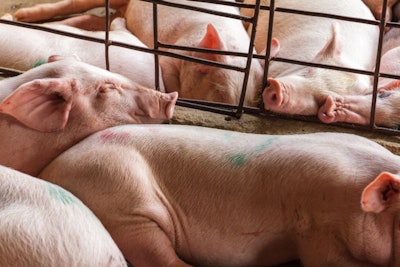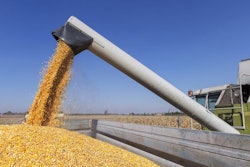
National Pork Producers Council and American Farm Bureau Federation filed suit against the California law on animal production standards
The U.S. Supreme Court has agreed to hear a case brought by the National Pork Producers Council (NPPC) and the American Farm Bureau Federation (AFBF) against California’s Proposition 12, which bans the sale of pork from hogs that don’t meet certain production standards.
In September 2021, NPPC and AFBF petitioned the court to hear their case.
“We are extremely pleased that the Supreme Court will consider the constitutionality of Proposition 12, in which California seeks to impose regulations targeting farming practices outside its borders that would stifle interstate and international commerce,” said NPPC President Terry Wolters in a press release. “NPPC has poured a lot of blood, sweat and tears into preserving the rights of America’s pork producers to raise hogs in a way that’s best for their animals’ well-being and that allows them to continue selling pork to all consumers, both here and internationally.”
The high court is taking up the case on appeal from the U.S. Court of Appeals for the 9th Circuit, which in July 2021 upheld a lower court ruling against the NPPC-AFBF lawsuit. The appeals court found that despite the organizations plausibly alleging that Prop 12 “will have dramatic upstream effects and require pervasive changes to the pork industry nationwide,” 9th Circuit precedent didn’t allow the case to continue. That precedent, however, runs counter to numerous Supreme Court decisions and is in conflict with nearly every other federal circuit court, NPPC said in the press release.
NPPC and AFBF in the coming weeks will file their initial brief with the Supreme Court, which could hear oral arguments in the fall and could render a decision by the end of the year.
Prop 12, which took effect January 1, prohibits in California the sale of pork from hogs whose mothers were raised in pens — anywhere in the world — that do not comply with the state’s highly prescriptive housing standards. It applies to any uncooked pork sold in the state, whether produced there or outside its borders. Nearly all pork produced in the United States fails to meet California’s standards.
“In addition to its unconstitutional extraterritoriality,” Wolters said, “Prop 12 sets arbitrary animal housing standards that lack any scientific, technical or agricultural basis and that will only inflict economic harm on U.S. hog farmers and consumers.”
In January, a judge in the Sacramento County Superior Court in California ruled that enforcement Prop 12 would be delayed 180 days, a move that AFBF said underscored the need for a U.S. Supreme Court ruling on the matter.
On March 28, AFBF said it was pleased with the Supreme Court’s decision to hear the cast.
“We share California’s goal of ensuring animals are well cared for, but Prop 12 fails to advance that goal,” AFBF President Zippy Duvall said in a statement. “We look forward to presenting the facts to the court, including how Prop 12 hamstrings farmers’ efforts to provide a safe environment for their animals, while harming small family farms and raising pork prices across the country. One state’s misguided law should not dictate farming practices for an entire nation.”











